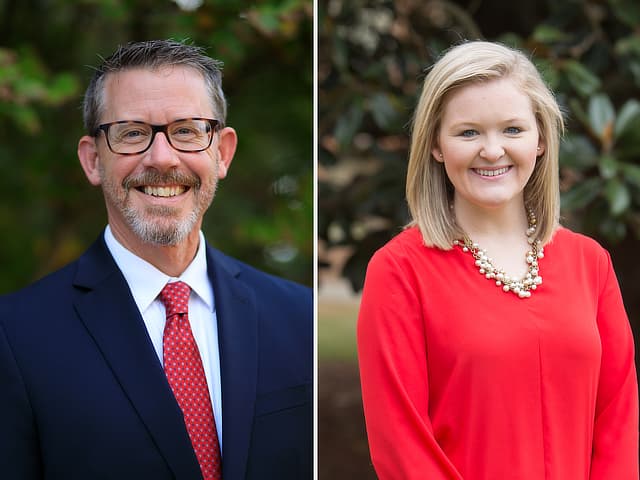Published on October 22, 2020

Kerry McInerney, a member of Cumberland School of Law’s class of 1998, is the director of Cumberland’s online graduate programs, where he also serves as the coordinator for the financial services regulatory compliance concentration. An expert in financial services litigation and compliance, McInerney joined Cumberland School of Law as an adjunct faculty member in 2016. He was named interim director of the graduate program in 2019 and director in 2020.
Before returning to his alma mater, McInerney enjoyed a distinguished career as a practicing attorney. He served as managing partner of Alabama and Mississippi litigation for McCalla Raymer Leibert Pierce LLC after spending 20 years at Sirote & Permutt PC. While at Sirote, McInerney devoted his entire career to financial services litigation and compliance and served as chair of Sirote's Mortgage Banking Litigation Group and Florida Mortgage Services.
Law is the second act of McInerney's career. Prior to law school, he obtained two degrees in acting—a bachelor’s in musical theater and a master’s in acting, including two years with the Hilberry Repertory Theatre Company. In the community, McInerney has been recognized for his leadership, serving on many civic and charitable boards, and as a graduate of Project Corporate Leadership and Leadership Birmingham.
Paige Price serves Cumberland School of Law as the assistant director of graduate programs. In her role, she is the main contact for all prospective and current students in the LL.M. and M.S.L degree tracks.
Previously she worked at UAB as the assistant director of engagement for alumni affairs where she developed and implemented the overall strategic plan for the UAB National Alumni Society’s engagement efforts. She has also worked at Maynard Cooper & Gale PC as a marketing and business development coordinator and at the Birmingham Museum of Art as a special events manager. Price volunteers with Innovate Birmingham as an interview and résumé writing coach and is a member of The Service Guild of Birmingham.
Here they share their vision for the future of Cumberland’s graduate program and how alumni can be involved.
What is one thing alumni may not realize about the online graduate programs?
One of the most surprising things about our program is the students themselves. With an average age of 38, our students have been working in their specific industries and careers for years. These students bring their own unique perspectives to each course through engaging online discussion boards and group projects. For example, our health law and compliance concentration includes students working with hospitals, insurance companies, pharmaceuticals and even the Federal Emergency Management Agency (FEMA). When you bring students together with such a variety of expertise and perspectives, coupled with the industry experts who teach our courses, you create a whole new way of online learning.
How can the Master of Laws (LL.M.) benefit an already practicing lawyer?
Our two-year graduate program responds to the demand for knowledgeable professionals with specialized training. In an ever-tightening legal market, our graduates set themselves apart from their peers in the fastest growing field—regulatory compliance. The curriculum allows students to study introductory and advanced courses such as regulatory compliance and enforcement, risk management, consumer protection and ethics. Our courses are taught by recognized scholars and practitioners, and our students have an opportunity to work alongside a professional mentor in their area of practice during their capstone experience. Our specialized concentrations in financial services regulatory compliance, health law and compliance, higher education law and compliance and legal operations afford our graduates an even greater degree of separation from their professional peers.
In summary, what is your vision for the future of the graduate programs?
Just as Cumberland enjoys a top five national ranking in trial advocacy, we have become a nationally recognized center for the study of regulatory compliance. We have exciting plans to enhance our program through partnerships with other colleges and schools across Samford University. This will allow us to offer additional specialized concentrations and elective courses, such as religion and regulation, to appeal to an even broader group of prospective students.
How can Cumberland School of Law alumni support the program and/or get involved?
If Cumberland School of Law alumni are interested in learning more, helping support scholarships for our students, or even applying to the online graduate programs, they can simply contact us through our website. We are currently accepting applications for the fall 2021 entry term. Our online application is quick and easy and we provide admission decisions via email within a few days of submitting an application. LL.M. requirements include a J.D. transcript, résumé, letter of interest and one professional recommendation.

